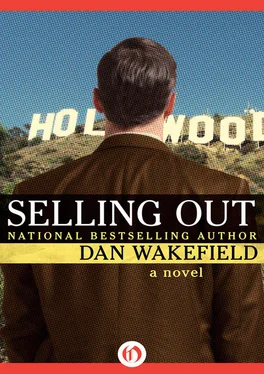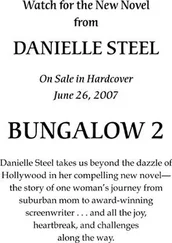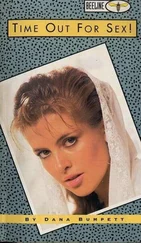“The parting was mutual.”
“What a loss,” Heathrow said brightly, lifting his wassail cup, “to your country’s culture.”
“Why don’t you take a flying fuck at a rolling doughnut?”
The Englishman whipped out a pad and pencil.
“I adore you people’s colloquialisms,” he said.
Perry went off in the crowd.
This was not his night. He had two more cups of wassail, and didn’t even try the buffet. The combination of Shurtleff and Heathrow had obliterated any trace of his appetite. He was left in the crowd, without even being noticed, wanting urgently now to get back to Jane, to try to talk some sense into her. He rehearsed his arguments in his mind, went over his reasoning and logic, and decided the most important thing was to emphasize how damn much he really loved her.
When he got back home, the lights were off in the condo. Maybe Jane was taking a nap. She was not in the bedroom, though. Or the living room. She had taken her suitcase. She had left the presents he gave her under the tree.
She was gone.
Perry needed a drink. He went to the fridge but the wine was also gone and the only thing he had was the bottle of champagne he had planned to use for making Mimosas for him and Jane the next morning. He opened it, and poured the bubbly into a tumbler. He sat down in the living room and tried to think what to do.
Should he follow her home? Should he pick up the phone and book the next flight? He could probably get the red-eye to New York that was popular with show biz insiders, winging into the Big Apple at dawn. Then he could take the first shuttle up to Boston, rent a car at the airport, and drive north, maybe through a snowstorm, mushing himself on till he dropped in the driveway at home and was hauled inside by a loving Jane, bearing a cask of brandy around her neck.
No. He was not going to run. He was not going to put his tail between his legs and slink away in the night. Sure, it might be fine that first night or two, making love in the big bed under the comforting pile of covers, sitting by the fire in the arms of his beloved and lovely wife. But then he’d have to face reality. His colleagues. He’d have to look them in the eye and admit defeat. He’d have to bear up to the dean’s smug sneer, the sympathetic coos of the faculty wives, the pats on the back of professors whose welcome was tempered with an unspoken “I told you so.”
No. He was going to stick it out. He was going to hang in there until he got at least one picture made—“The Springtime Women” was just around the corner, for God sake—and then go back in triumph, in his own good time.
In the meantime, he ought to call Al Cohen and just ask him to check on Jane when she got back, make sure she was OK. The trouble with that was, he’d have to tell Al he wasn’t coming back—yet again—for the spring semester. And that would bring up the whole ball of wax about tenure.
Perry knew the dean would never give him another period of grace, that in effect he’d be giving up his tenure by failing to go back this time. He had already thought it through and was ready—even committed—to gambling on the greater kind of tenure that awaited him with the gold rush of his entry into feature films. Al Cohen would never begin to understand that, though, and he didn’t want to try to explain it or defend himself.
He took several gulps of champagne and sat down right then and there and wrote to Al. He said he realized he was forfeiting his tenure, but his commitments in California prevented him from returning to Vermont at this time. He fully planned, though, to return for the fall semester and looked forward to teaching—if not his regular class load, at least his writing seminar, and perhaps, with department approval, beginning a new workshop on the craft of film writing. He felt sure it would be popular with the students, and in fact when word of it got around New England (there should be no problem getting a feature on it in the Boston Globe when the time was ripe), it might very well attract new students to Haviland. It would, in a sense, be a way for him to make up to the college for his extended absence.
The letter, especially the new idea for the screenwriting workshop, eased his conscience. It also helped take his mind off Jane. He finished the bottle of champagne and collapsed into bed.
“Trust me,” Ravenna said.
Perry made a harsh kind of cackle.
“Is that some kind of show business term, like ‘the bottom line’?”
“What are you talking about?”
“‘Trust me.’ That’s what Archer Mellis always used to tell me.”
“Don’t get paranoid, now.”
“How can I not get paranoid when my old friend gives up on my movie after only one place turns it down?”
“Vaughan has not given up on ‘The Springtime Women,’ he’s simply put it on the shelf for a while. And don’t say anything to him you’ll regret. He’s a good producer; he’s bankable .”
“That fucking Mellis screwed this up. He bad-mouthed me to that snippy asshole from Unified, I know it.”
“If you start trying to figure out who’s doing what to you and who else and why you’ll go nuts in this town,” Ravenna said. “Now settle down and eat your squab salad.”
Perry sighed and took a sip of wine.
“I’m sorry,” he said. “Listen, I really appreciate this—everything.”
They were sitting at a table with a candle beside a lovely, lighted pool, in the back of a beautiful house in Beverly Hills. It was not Ravenna’s own house but one of her successful new actress clients had loaned it to her while she was shooting a film on location in Ecuador. Ravenna had canceled other plans and had Perry over to calm down and plan some solid strategy. He had called that morning and sounded like he was going to pieces after hearing the news that Vaughan had struck out at Unified with “The Springtime Women” before it had even got to the stage of a meeting with Perry. They simply said they already had two films in development set in Greenwich Village and could not at this time consider another.
“I still don’t understand why Vaughan can’t get it going somewhere else with Harrison Ford as part of the deal.”
“Darling, he’s not part of the deal .”
“You mean Vaughan was lying to me?”
“No, he told me Harrison in fact did read the story and liked it very much.”
“So, doesn’t that mean anything?”
“Someone of Harrison’s stature can’t commit to a project until he sees a script , darling. We’re not even close to that.”
“So what am I supposed to do, twiddle my thumbs till Vaughan decides to get off his ass and try to do something with it again?”
“Of course not. You’re going to try to get another of your stories into development.”
“I haven’t even thought of one.”
“That’s why you have a super agent, mister. This afternoon I looked through that book of stories you gave me and I know just what you should do. It would make a very nice little film, and it could be done for under eight.”
That meant eight million, Perry knew now, and was a real bargain.
“In fact,” Ravenna said, “I don’t know why you haven’t thought of this one yourself.”
“Which one?”
“‘Rich and Ripe’ of course.”
It was a short story, almost a vignette, that was originally in Playboy , about a Boston matron who has a Harvard boy to tea, hoping to seduce him, but he has no idea what she has in mind and is shocked when it finally becomes apparent to him. He flees.
“But nothing happens,” Perry said.
“Darling, nothing happens in any of your stories.”
“Thanks a lot.”
“Don’t get sensitive, please. This is the seed of a delicious idea—in the film, of course, the matron succeeds in seducing the boy, and they have an absolutely splendid, hilarious affair. You’ll simply have to pitch it that way for producers.”
Читать дальше












